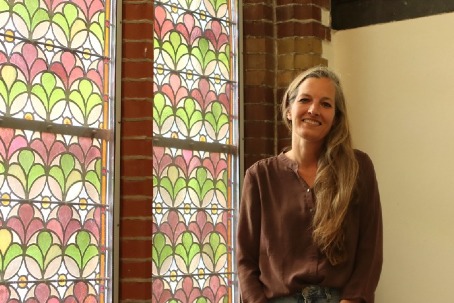Anna Lichtwarck-Aschoff

In 1999, my husband and I came to Groningen from southern Germany to study Psychology. I graduated in developmental psychology and then spent five years as a PhD student at the Faculty. After my PhD, I worked as an assistant professor in Orthopedagogy at Radboud University for 12 years.
Since 2021, I have returned to the Faculty of BSS, as Professor of Orthopedagogy and Chair of the Orthopedagogy basic unit ‘Child and Family Welfare'.
In this role, I supervise students' papers/thesis and teach Master's courses. I am involved in various research projects: local and practice-oriented, but also national and international concerning more fundamental issues. I prefer an interdisciplinary approach and seek cooperation both within and outside the faculty. In addition, I translate scholarly insights into practical solutions for urgent problems in youth welfare. Within my department, I aim to create a safe and inspiring context where colleagues and students can be themselves, express their needs and have discussions.
I enjoy the working atmosphere at the faculty. In our department, I see many colleagues work on teaching and research from a deep commitment and passion: it is about the content and not the egos. As a team, we work hard, paying attention to each other. Despite the work pressure being high sometimes, we support each other, taking over tasks where necessary and helping each other to put things into perspective and guard boundaries. I am also happy with my management and dean: I feel they take concerns seriously and actively contribute to solutions.
With our work, I hope to contribute to a different mindset about well-being, psychological problems and their treatment. We need to break away from pigeonholes, classifications, and group averages and pay more attention to the complex interplay between individuals in their context and underlying processes and mechanisms of change. This requires a different way of doing research: process-based, interdisciplinary, and in close collaboration with the professional practice. We also need to work differently in practice, listening carefully to young people and families and breaking down the fragmentation between professionals and organizations.


